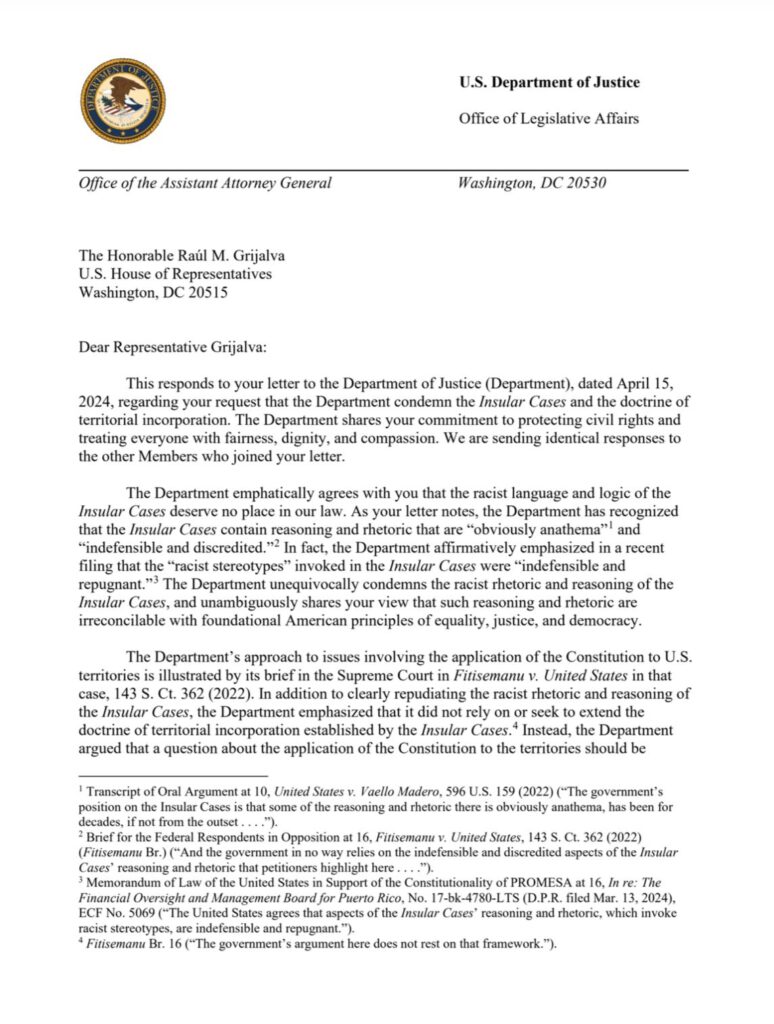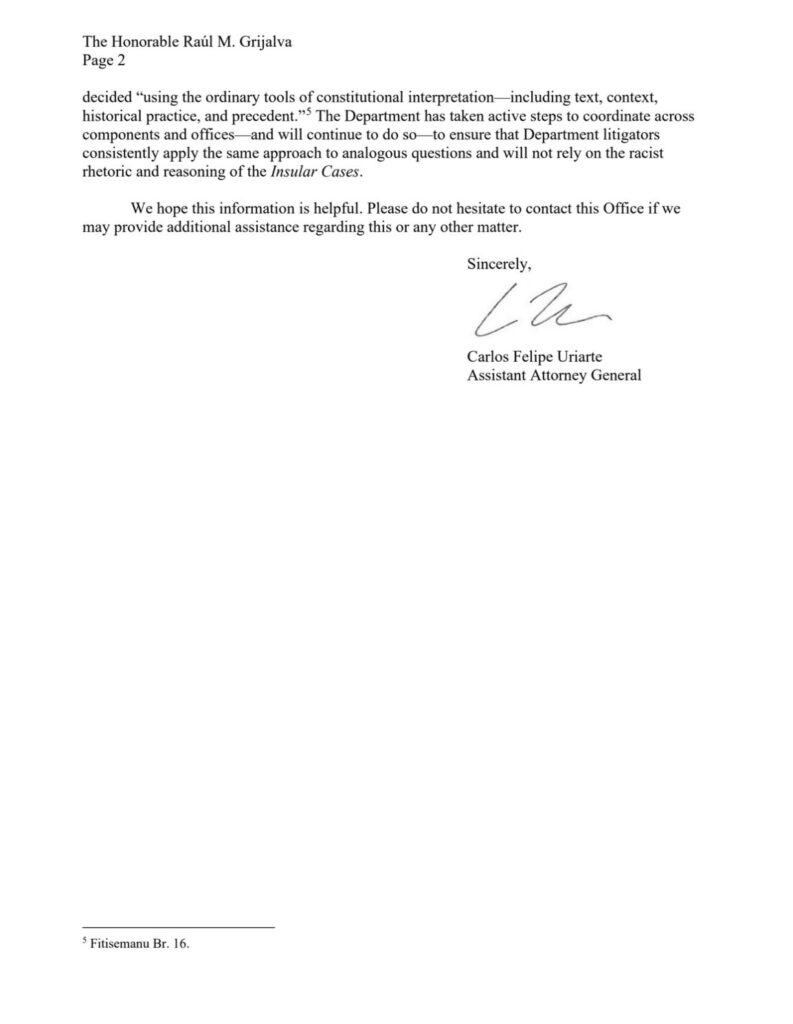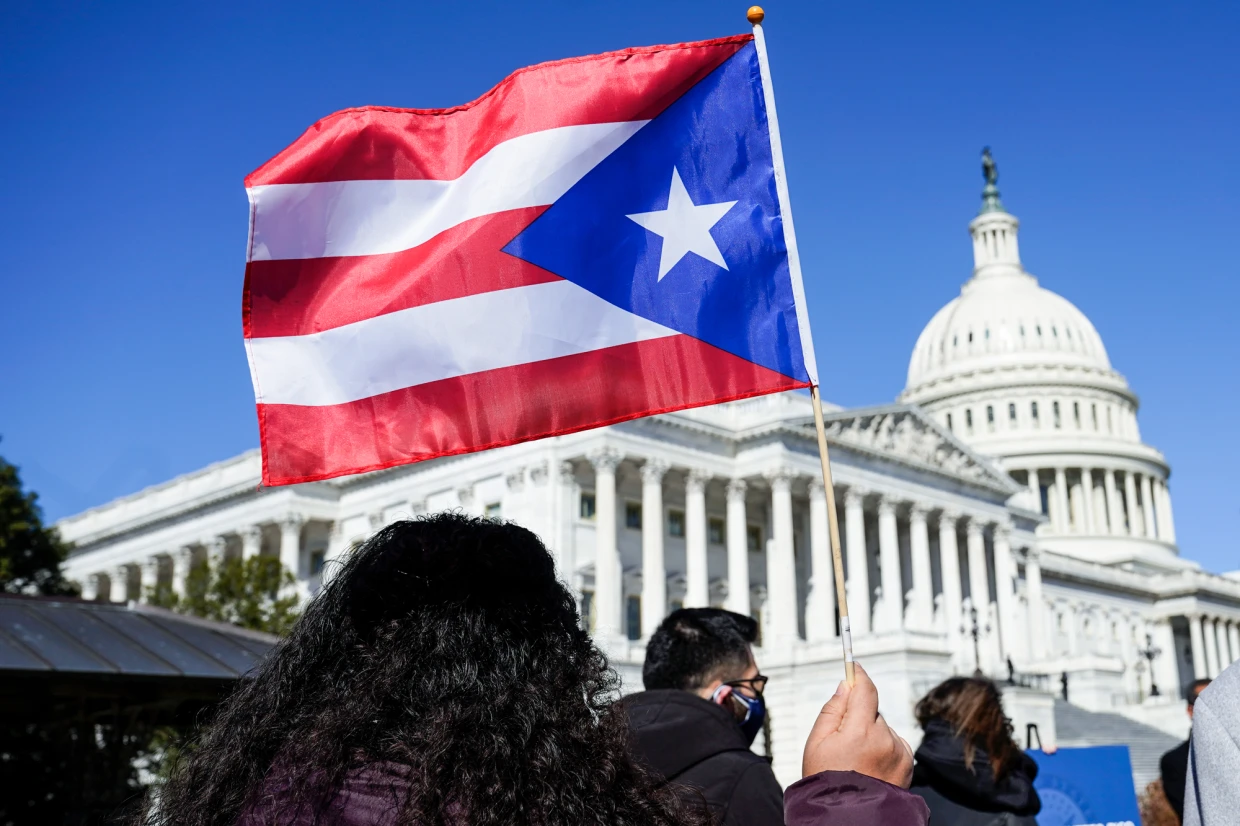The Justice Department has taken new steps to condemn a series of racist Supreme Court rulings from a century ago that effectively allowed people living in U.S. territories to be treated like second-class citizens.
In a letter obtained by NBC News that was sent last week to a mostly Democratic group of lawmakers, Assistant Attorney General Carlos Felipe Uriarte went further than the department has ever gone before in repudiating the rulings, which the government has in the past relied upon in litigation.


“The Department unequivocally condemns the racist rhetoric and reasoning of the Insular Cases, and unambiguously shares your view that such reasoning and rhetoric are irreconcilable with foundational American principles of equality, justice, and democracy,” he wrote.
Uriarte added that the Justice Department has taken steps internally to ensure that lawyers “consistently apply the same approach” across different offices.
The Insular Cases were a series of rulings issued in the 1900s, soon after the U.S. had acquired Puerto Rico and other territories. The court said rights that people on the U.S. mainland enjoyed did not necessarily extend to people in Puerto Rico and other newly acquired territories.
Although the letter is the strongest public statement the department has made on the issue, it stopped short of saying the government would ask the Supreme Court to overrule the cases.
The letter was in response to a request from lawmakers in April asking for the department to publicly disavow any reliance on the cases.
“We are pleased with the Justice Department’s action to unequivocally reject the racist doctrine of the Insular Cases,” Rep. Raúl Grijalva, D-Ariz., who is ranking member of the House Natural Resources Committee and helped organize the letter, said in a statement.
“This is an important step towards the Supreme Court finally overruling these discriminatory decisions, which have served to justify the denial of equal rights and self-determination to communities of color in U.S. territories for nearly 125 years,” he added.
Sen. Dick Durbin, D.-Ill, who chairs the Senate Judiciary Committee, likewise welcomed the development, saying it “marks progress for our democracy, its promise of equality under the law, and Democrats’ quest to bring balance to our justice system.”
Neil Weare, a co-director of an advocacy group called Right to Democracy, which has sought to undermine the Insular Cases, said it was significant that the Justice Department had made a strong public statement.
“This goes beyond what they’ve said previously in court filings and makes it clear that their policy rejecting the Insular Cases will hold across all levels of the department,” he added.
The Insular Cases were suffused with racist language, with one justice referring to territories as places “inhabited by alien races” who might not abide by “Anglo-Saxon principles.” Another justice wrote that the U.S. had the right to acquire “an unknown island, peopled with an uncivilized race,” without having to confer full constitutional protections.
The Supreme Court to date has rejected efforts to overturn the Insular Cases, although two justices, conservative Neil Gorsuch and liberal Sonia Sotomayor, seem open to the idea.
There are five U.S. territories: Puerto Rico, American Samoa, Guam, the Virgin Islands and the Northern Mariana Islands. Puerto Rico, with about 3 million residents, is by the far the largest by population.




















































































